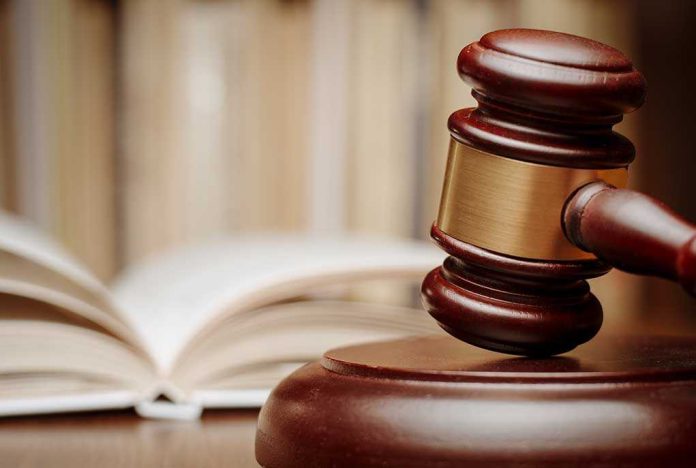
Judicial Watch is dragging the Justice Department to court—again—this time for answers the American people deserve about the would-be assassin who nearly took President Trump’s life in Butler, Pennsylvania, and the government’s disturbing lack of transparency in the aftermath.
At a Glance
- Judicial Watch sues the DOJ for failing to release records on Thomas Crooks, the man who attempted to assassinate Donald Trump at a 2024 rally.
- The attack left Trump wounded, killed Corey Comperatore, and exposed alarming security failures by the Secret Service.
- The FBI’s investigation remains active, while Judicial Watch pursues legal action for transparency on Crooks, security lapses, and any ignored warnings.
- Congressional reports blast the Secret Service and law enforcement for a preventable attack, leading to major security overhauls.
Judicial Watch Demands the Truth After Butler Attack
The American people watched the nightmare unfold on July 13, 2024: Donald Trump, former president and Republican candidate, survived an attempted assassination during a Pennsylvania rally. Thomas Crooks, just 20 years old, managed to kill a firefighter and wound Trump before being neutralized by the Secret Service. Judicial Watch, never one to back down from government stonewalling, immediately launched Freedom of Information Act requests. Now, a year later, they’re suing the Justice Department and Department of Homeland Security for stonewalling, refusing to release records about Crooks, the security plans, and any warnings that may have been ignored. The watchdog group’s president, Tom Fitton, calls the government’s silence an outrage and a threat to accountability.
The FBI moved quickly after the shooting, taking over the investigation, raiding Crooks’ home and car, and conducting scores of interviews. They seized digital evidence, but much of what they’ve learned remains locked up behind government walls. Judicial Watch’s lawsuits, filed throughout the past year, are a direct response to the DOJ and DHS slow-walking or outright ignoring requests for transparency. The stakes are obvious: Americans want to know if this attack was preventable and whether government agencies missed—or buried—critical warnings. For anyone who values genuine oversight, the government’s refusal to hand over records looks less like security protocol and more like a bureaucratic cover-up.
Unforgivable Security Failures and the Fallout
Congressional task forces and security experts have not minced words: the attack on Trump was preventable. Multiple investigations found that the Secret Service and local law enforcement failed in both planning and execution. Despite deploying sniper teams and a quick response force, they allowed a lone gunman to climb onto a nearby rooftop and open fire. The Secret Service, now under a microscope, has since scrambled to overhaul its protocols—rolling out enhanced drone surveillance, mobile command posts, and expanded event security. But these upgrades come too late for the victims of Butler and do nothing to answer the questions about how such a catastrophic lapse happened in the first place. Families of the victims, Trump’s team, and millions of voters want answers and accountability, not bureaucratic excuses and slow-walked investigations.
Congressional reports released earlier this year point the finger squarely at “systemic failures in planning and leadership,” not just a single mistake. Law enforcement agencies have been forced to acknowledge these errors publicly, but transparency about what went wrong and who is responsible remains elusive without the records Judicial Watch is demanding. In the meantime, the cost of security for political events has soared, and the chilling effect on public rallies is unmistakable.
The Fight for Transparency and the Stakes for America
Judicial Watch’s lawsuits are about more than just one failed assassination attempt—they’re about the basic principle that government should answer to the people, not hide behind red tape and legal maneuvering. The Biden administration’s legacy of secrecy and backroom dealing may finally be ending, but the scars it left on our institutions remain. President Trump’s return has brought a renewed push for accountability and border security, but legacy bureaucracies are still dragging their feet. Judicial Watch’s relentless pursuit of records could set a precedent for FOIA compliance in high-profile cases, forcing agencies like the DOJ and DHS to come clean.
As the FBI continues picking through digital evidence and the Secret Service upgrades its toys, the core issue persists: can Americans trust their government to protect their leaders and tell the truth when it fails? With Judicial Watch in the ring, the answer may finally be forced into the light. Until then, the frustration lingers, the questions pile up, and the American people wait for the real story—one they have every right to know.
Sources:
Judicial Watch official statements and lawsuits
Congressional task force final report
FBI press releases and investigation updates
FBI press releases and investigation updates
Media coverage of Secret Service security changes



